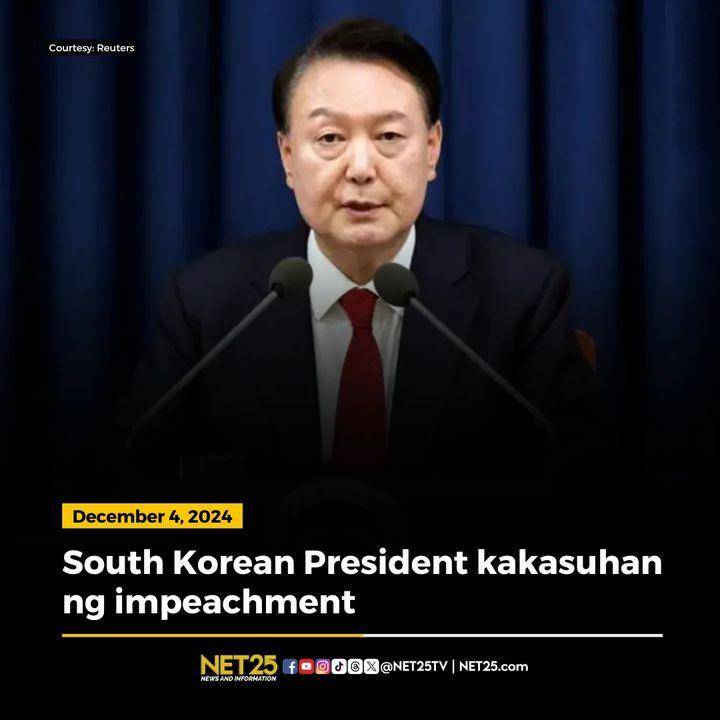South Korean Opposition Moves to Impeach President Yoon Over Martial Law Declaration.
South Korea’s political landscape has been shaken by a recent political crisis, with opposition parties submitting an impeachment motion against President Yoon Suk-yeol. The impeachment bill comes after Yoon’s controversial declaration of martial law, which many view as a severe overstep of presidential power. The motion, filed by six opposition parties on December 4, 2024, has stirred heated debates and protests, with calls for Yoon’s immediate resignation.
The controversy began earlier in the week when President Yoon announced martial law in response to what he described as threats from North Korean forces and an alleged political paralysis caused by his opposition. His declaration of martial law was quickly retracted, but not before it triggered chaos within the National Assembly, as lawmakers clashed with military personnel over access to the legislative chamber. The opposition, led by the Democratic Party, has condemned Yoon’s actions as a direct violation of the South Korean Constitution.
The Democratic Party, which holds a majority in the National Assembly with 170 seats, has labeled Yoon’s move a “serious act of rebellion,†asserting that it provides a “perfect reason for impeachment.†The party emphasized that martial law is an extraordinary measure that should not be invoked lightly and described Yoon’s decision as an overreach that endangered democratic norms.
In response to the crisis, several high-ranking officials, including Presidential Chief of Staff Chung Jin-suk and National Security Adviser Shin Won-sik, have tendered their resignations, citing the botched handling of the situation. Prime Minister Han Duck-soo has vowed to continue his duties, asking the government to maintain stability while addressing public concerns.
As the impeachment motion moves toward a vote later this week, the opposition faces a challenging path. Despite its majority, the Democratic Party will need support from some members of Yoon’s ruling People Power Party to succeed in the motion. A successful impeachment would temporarily strip Yoon of his powers, pending a review by the Constitutional Court.
The crisis has also spurred widespread protests. The Korean Confederation of Trade Unions, one of the country’s largest labor organizations, has called for a nationwide strike until the president steps down, further fueling the political unrest.
This unprecedented political drama has drawn attention both domestically and internationally, raising critical questions about the future of South Korea’s leadership and the state of its democratic institutions. As the impeachment process unfolds, all eyes will be on the National Assembly to see whether President Yoon’s tenure will be cut short or whether he will weather the storm and retain his position.
Key Takeaways:
- South Korean opposition parties have submitted an impeachment motion against President Yoon over his controversial martial law declaration.
- The opposition, led by the Democratic Party, accuses Yoon of violating the Constitution and committing a "serious act of rebellion."
- The impeachment vote is expected to take place later this week, with the possibility of Yoon being temporarily stripped of his presidential authority.
- The crisis has led to resignations among key officials and sparked public protests, including calls for a nationwide strike.
- The outcome of the impeachment process will have significant implications for South Korea's political future.
- This ongoing political drama highlights the challenges faced by South Korea’s democratic system and underscores the importance of upholding constitutional limits on executive power. With the situation continuing to evolve, it remains to be seen how the National Assembly will respond to the impeachment motion and what it will mean for the nation’s  leadership.



No comments yet
Be the first to share your thoughts!